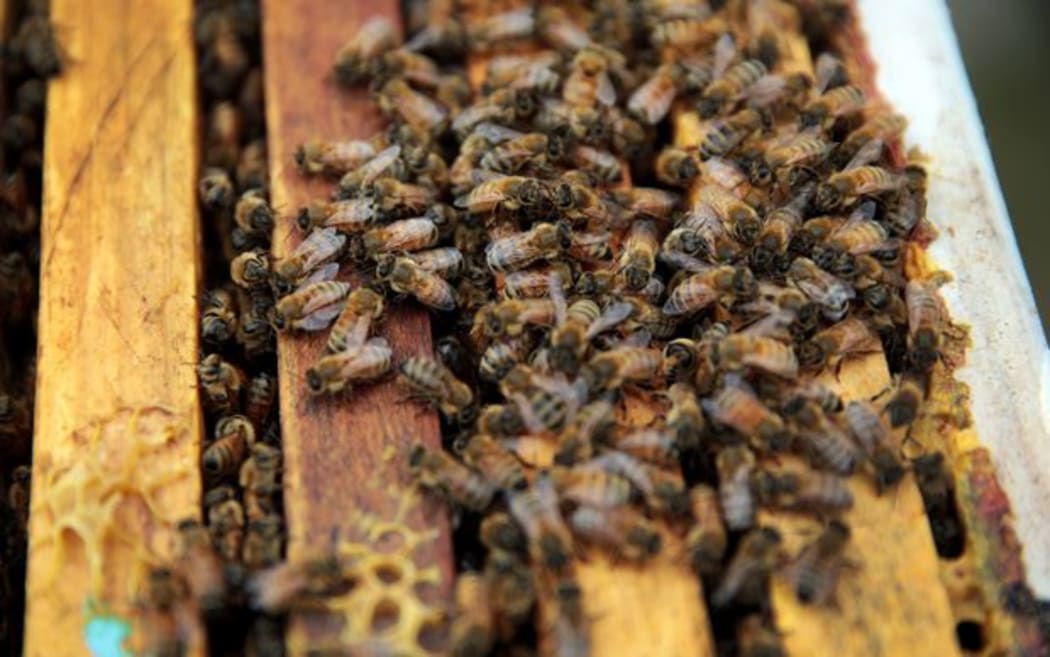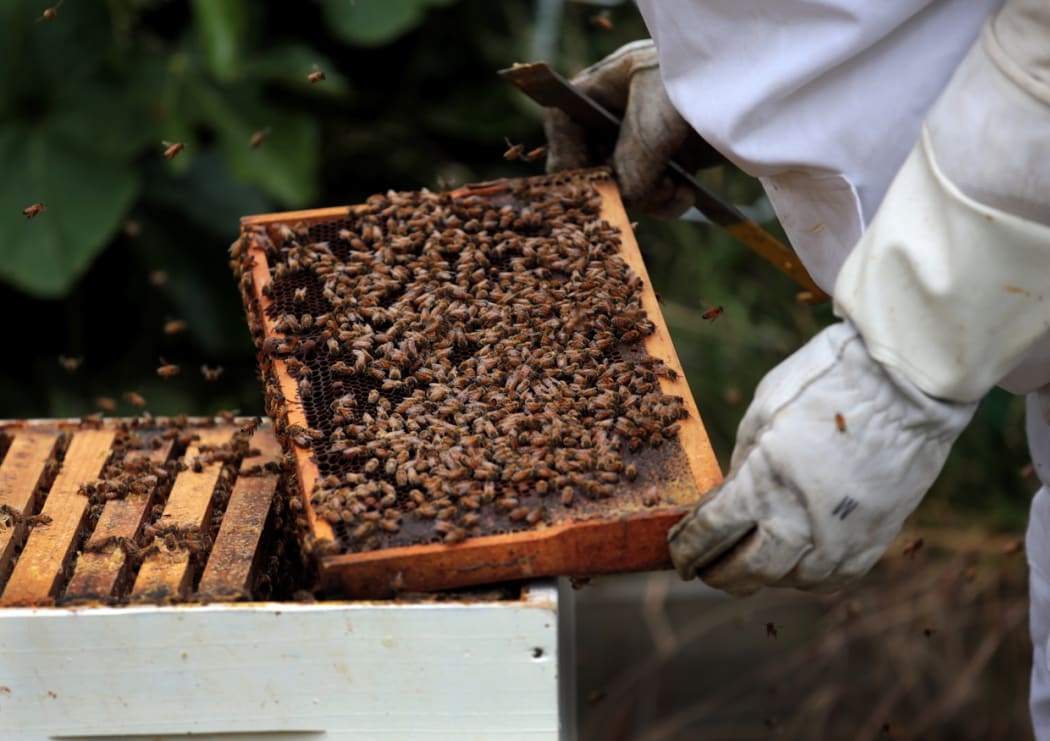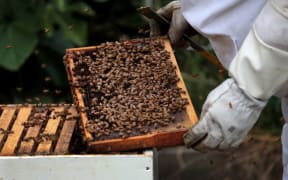Honey producers say New Zealand consumers are being forced to pay far too much for ordinary honey because of a rapacious demand overseas for the manuka variety.

The industry is taking steps to form a single organisation to represent it. Photo: RNZ / Diego Opatowski
Airborne Honey managing director Peter Bray said there was an insatiable demand for manuka honey.
He said exporters were buying up all available table honey which they blended with the manuka to sell on international markets labelled as New Zealand manuka honey.
World standards require a honey to be wholly or mainly made from the named source, in this case manuka.
Mr Bray said allowing blended manuka honey to be sold as genuine manuka honey was not good for brand New Zealand or domestic customers.
He said domestic consumers were paying $10 for a 500gm jar of honey when it should be about $6.
"Manuka honey is being sold in export markets at extremely high prices and there are no standards or regulations in New Zealand that are creating a gate, if you like, through which everything's assessed."
New Zealand honey exports reached 8648 tonnes last year, similar to 2013, but the value grew to $202 million.
Mr Bray said that suggested that premium-priced manuka honey made up more than 70 percent of total sales.
The honey export company 100 Percent Pure also said demand for New Zealand honey was up.
But its chief executive, Sean Goodwin, disputed the claim that exporters were blending table honeys with manuka for overseas sales. "Certainly a lot of work going on in the industry right now to determine what exactly constitutes manuka.
"There's a lot of project work being done both by the UMF Association (Unique Manuka Factor Honey Association) and MPI (the Ministry for Primary Industries) to try and get to the bottom of that.

The Ministry for Primary Industries wants to be able to more accurately define the properties of manuka honey. Photo: RNZ / Diego Opatowski
"However, I think it's unfair to suggest that across the board all of those other honeys are somehow being put into a jar and labelled as manuka."
Mr Goodwin said the domestic market would have to get used to paying honey's international price. "Some of the pricing that's been in the local market for the last few years is probably going to have to rise as you're seeing in other products like wine and meat, and in dairy.
"It is simply a case that some of those offshore markets have a greater demand and a greater ability to pay for those products."
Federated Farmers Bee Industry Group chairperson John Hartnell said more often than not the export market supported the local market. "There's generally quite a delay between price movement and actual price increase in the domestic market.
"Often that can be three months, four months, six months depending on what the contract is between the supplier and the supermarket chain concerned.
"The reality is that prices in New Zealand are probably lagging behind those that are being achieved in the export market."
Mr Hartnell said there had been times when the domestic market was returning much higher prices than the international market, but right now the export markets were driving the price of honey.
He said the price of honey could be seen as a success story.



